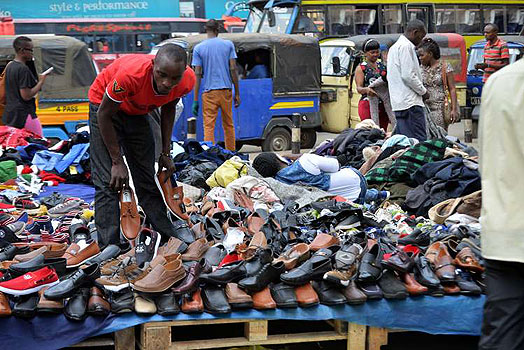Nairobi’s Street Hawking Menace
Early Tuesday morning, and it is a day after Easter Monday, and what I would call an enlightening, deep Easter. But in the midst of this peace, hawkers caught selling in the CBD by the Nairobi City Council, yet again hassled and shoved into the ‘gari ya kanjo’ (city council van), begging for a way out to carry on with their business day.
Not an uncommon sight when in Nairobi especially in the city center, but the fact that it’s a vicious cycle makes me wonder, is there another way to handle the hawking issue?
The fact that these people keep coming back and keep selling no matter what must mean something economically right? (For both the seller and buyer) I can’t imagine spending over 20,000 Kenya shillings worth of goods and having it all forcefully taken away, yet I am expected to miraculously look for more ‘lawful’/’decent’ work in a country whose employment rate is at 15.6% and rising.
Joram Wenamu, Management and Entrepreneur Expert gives insight on the changing times, especially post-pandemic on the economy, and the adaptation that most citizens are practicing at the moment, “When you are going through a crisis it calls for you to do things differently. In an ideal scenario, the opportunities might be there that merge with your skills. But in a time like now everybody has had to adapt. Everyone has to be adaptive, so doing things that are not matched to your skills is not a disservice to yourself.”
We want instant satisfaction which creates a recurring long-term problem. Our leadership and government dockets seem to leave no growth plan for the evolution and adaptation that is taking place in the economy. There are current laws that can be reconstructed to work for our economy and culture of the day. The journey to becoming a 1st world country should not include copy-pasting the West, it should involve merging our needs as Kenyans, that is changing the types of opportunities (excluding the white-collar economy) and aligning this with the move to becoming an economically empowered nation. We cannot make the change immediately, therefore we need to stop ignoring the baby steps in between.
To the policymaker and law enforcer, hawking doesn’t need to be given such a rouge picture, why not strategize, use available resources, create/re-utilize dead spaces within and out of Nairobi, scale down the rental costs significantly, and then you can think of giving a directive not to sell on the pavement.
That said, the Kenyan’s favorite place to shop will always be the cheaper bargain, unless the plan is to make us all rich.
Nairobi’s Street Hawking Menace







